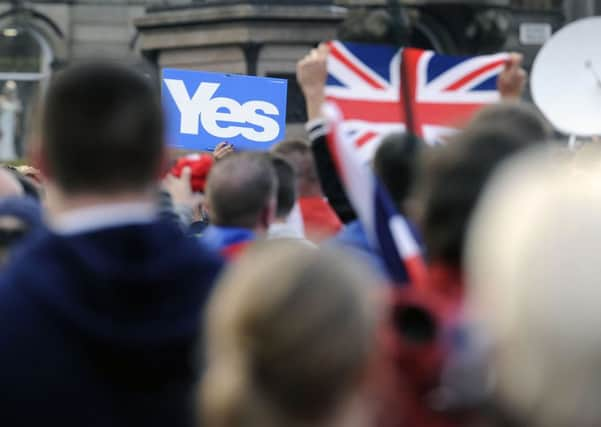Helen Martin: This is how we're turning into party political serfs


One aspect hitting headlines at the moment is how it affects politics – including harnessing data of users and how politicians, especially female ones, are now subject to personal abuse.
But perhaps one of the biggest political effects is how private individuals now choose to nail their colours to the mast, becoming “mini politicians” by attacking any opposition parties and engaging “publicly” in vicious verbosity with anyone else who doesn’t agree with them.
Advertisement
Hide AdAdvertisement
Hide AdOf course, that’s been most obvious during the indy ref, the Brexit ref and subsequent negotiations, elections and all other steamy, political periods. But for many, politics has become one of their most regular posts. As a result, their favoured party becomes a crucial part of their networking identity, possibly for life – something that didn’t happen before Facebook and Twitter when the electorate behaved very differently.
Decades ago – apart from known politicians, campaigners or trade union leaders – how the ordinary man or woman in the street voted at the last election was regarded as a very private matter, something that didn’t come up in polite conversation lest it caused a problem.
Nor was it deemed certain, or even probable, that someone would vote the same way next time. Indeed, a popular public belief in the past was that it was always better to limit the power of any party to stay too long in office so that anything bad they had done could be undone, and they didn’t have time to ruin the country.
In 1945 Labour took charge, in ’51 that switched to the Tories, ’64 Labour, ’70 Tories, ’74 Labour and ’79 Tory. That’s when it all went terribly wrong with Margaret Thatcher and John Major extending the Tory “reign” to 1997, and handing over to Labour from 1997 to 2010.
Advertisement
Hide AdAdvertisement
Hide AdSuch long terms in power can be devastating to any country. And such party loyalty is encouraged by social media (just as daft as people sticking with the same utility company for years without switching) and means the electorate is no longer looking at politics objectively, realistically and critically.
Instead they are in biased gangs or tribes. None of today’s SNP supporters will praise anything the Tories say or do, even if it’s brilliant. And no Conservative Tweeter will ever condone anything said or done by the SNP, no matter how wonderful. Greens fans might back the SNP, but Labour’s certainly won’t, any more than they’d applaud a Tory, while the Lib Dems remain mysterious.
How then, can this electorate be in the position at any time to genuinely weigh up the pros and cons of each political party and vote accordingly?
Democracy is not about staying in one “club”. The crucial role of voters prior to every election is to listen to every party with an open mind, recognise the mistakes, note the successes, consider the policies and the priorities of each, and only then decide who will get their vote.
Advertisement
Hide AdAdvertisement
Hide AdWith polluted oceans, disastrous finances, terrorism, global warming, the Middle East at war, so many of the planet’s species becoming extinct, Brexit, and Donald Trump as US President (a plot that’s more like a Mel Brooks movie than reality), our electorate needs to be analytical and intelligent … not manipulated, obedient, party dummies.
Dec may struggle without Ant
ANT McPartlin has been through tough times and I sincerely hope his second (and possibly last) chance at rehab works well for him and Declan Donnelly. The survivor, or remainer, of a famed, long-established double-act rarely makes the successful transition to solo performer.